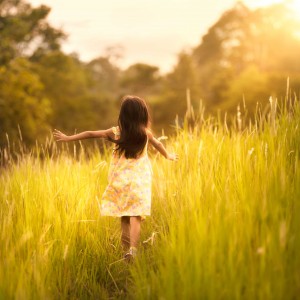“So, like a forgotten fire, a childhood can always flare up again within us.” ~Gaston Bachelard
 Even if one has had a very good childhood, there are often a few incidents which have left their mark—a mark which may affect aspects of adult functioning. Perhaps it was not being chosen for a team, or friends being mean. It might have been being left with a babysitter, too young to realize Mom and Dad would come back. A childhood injury or medical treatment can be frightening for children.
Even if one has had a very good childhood, there are often a few incidents which have left their mark—a mark which may affect aspects of adult functioning. Perhaps it was not being chosen for a team, or friends being mean. It might have been being left with a babysitter, too young to realize Mom and Dad would come back. A childhood injury or medical treatment can be frightening for children.
For those who had difficult or painful childhoods, the long-term effects are even more pronounced. Abuse, neglect, being bullied, or being rejected can affect the way we function as adults.
All of the pain, fear, sadness and memories belong to our “inner child.” That is the aspect of our inner world that is the repository for everything we experienced in childhood, whether we remember events or not. Every feeling is stored, every belief we told ourselves when we were little, every conclusion we drew about ourselves.
Most “ inner children ” are wounded to some extent. The wounds are not necessarily proportional to the event, as a very sensitive child can hurt deeply by being rejected, and a more resilient child may handle some difficult situations with fewer effects.
It is these wounds that often cause us pain in adulthood. Events happen that trigger the old pain, and the wounded child comes forth. A husband comes home late for legitimate reasons, and a wife may over-react due to old feelings of abandonment. A wife may point out something her husband forgot, and he may go off the deep end, angry at feeling criticized, the same as he felt when his mother always pointed out his mistakes.
At work, jealousies and rivalries may emerge, with workers vying for the good opinion of the boss. Some may even “tattle” on another, in an effort to boost her own position. This is an unconscious playing out of sibling rivalries, with the boss being seen as the “parent.”
This can even happen with parents in relation to their children. A father can feel left out when the mother spends a lot of time with the new baby. When children are older, parents may compete for the attention and loyalty of their children. Again, these are not adult responses, but rather a kind of re-enactment of old experiences.
Clearly, a wounded inner child can wreck havoc on relationships and personal wellbeing. There are things we can do to heal our own inner child . The most important is to begin to become aware of how our past experiences may be affecting our present reality. Next, we need to become a caring, nurturing mother/father to our own inner child. We do this by recognizing when we are having a reaction, and calming down our own emotions. This can be done the same we would comfort an actual child.
Our inner child needs to know we are there for him/her with love, compassion and acceptance. That child needs all of the things we may not have received from our own parents when we were young. The more we nurture and reassure our inner child, the less likely we are to unconsciously act out those inner, past-based emotions on others.
Copyright © Gwen Randall-Young, All Rights Reserved. Contact us if you would like permission to reprint.
MP3s You May be Interested In:
Healing the Past
Healing Your Inner Child
Releasing Anxiety
Healing Depression
Releasing Anger






